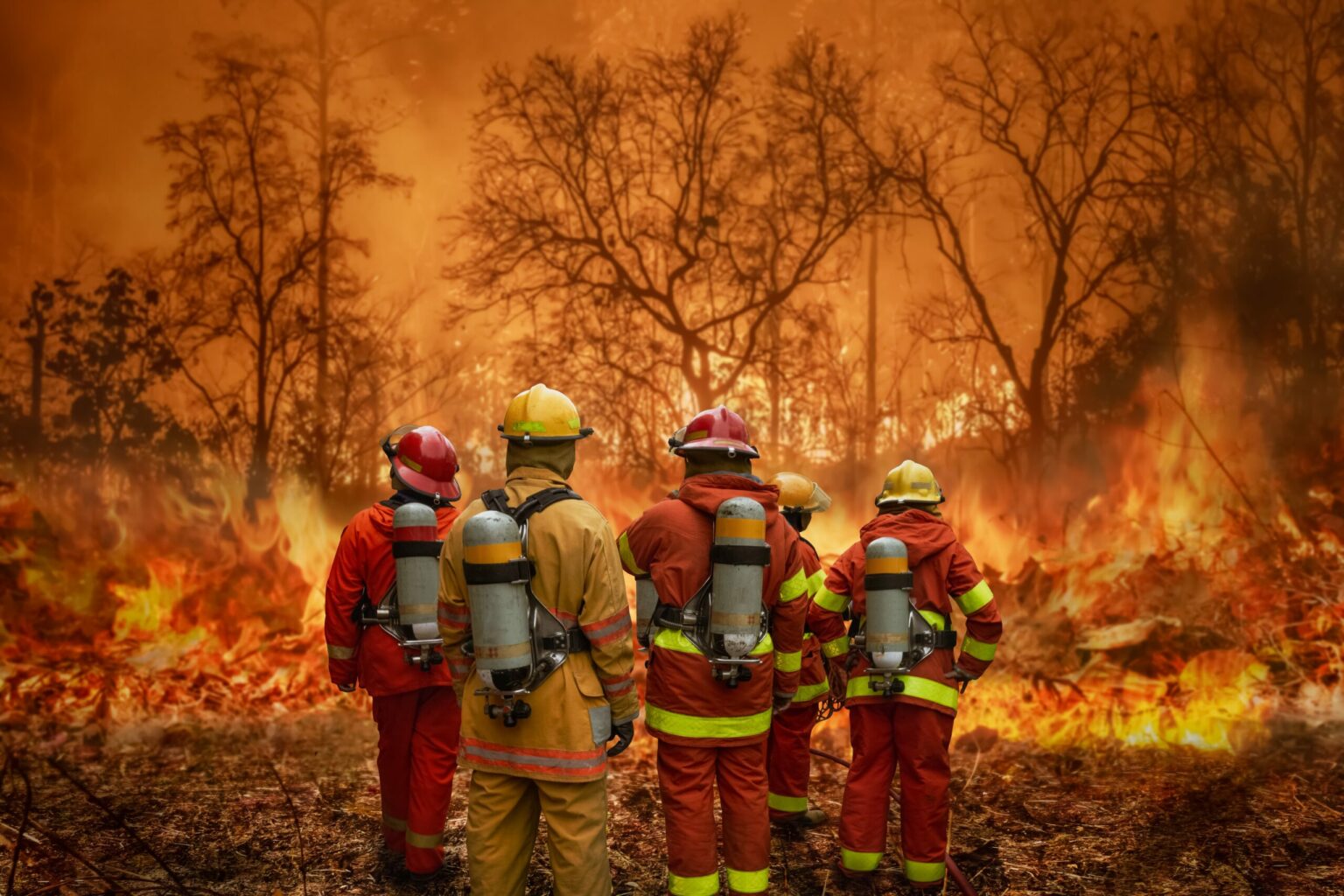Fire chiefs worldwide stress on the growing risks of climate change
- September 22, 2023
- 12:47 pm


Iain Hoey
Share this content
In a recent position paper coinciding with the UN’s Climate Ambition Summit in New York, global fire chiefs from major cities expressed deep concerns about the increasing risks posed by climate change.
They stressed the imperative for proactive strategies and greater cooperation to strengthen the capabilities of fire and rescue departments around the world.
Chiefs collaborate for a proactive stance on climate change impacts
This marks the inaugural occasion where chiefs from the Urban Fire Forum have published a position paper focusing on climate change’s implications for the fire service.
The paper was formulated with the backing of the US Fire Administration.
The National Fire Protection Association (NFPA), located in Quincy, MA, hosts the Urban Fire Forum. It brings together fire chiefs from prominent cities across the globe.
Their annual gathering facilitates the chiefs to provide policy direction concerning emerging challenges facing fire departments internationally.
Prominent figures from the fire service, including US Fire Administrator Dr. Lori Moore-Merrell and NFPA President and CEO Jim Pauley, were present.
Extreme weather patterns underline the urgency
Recent occurrences have underscored the fire chiefs’ urgency regarding this issue. For instance, in August, Lahaina in Maui faced devastating wildfires intensified by drought conditions and storm-like winds, marking it as the most fatal wildfire in the US in over 100 years.
Globally, such severe weather phenomena are on the rise.
In 2022, a total of 42 weather-induced disasters were recorded worldwide, each leading to damages exceeding a billion dollars.
In their paper, the chiefs mentioned: “Throughout history, fire and rescue departments have dedicated countless hours preparing to respond to catastrophic events, striving to minimise the effects on the communities they protect.”
However, with climate change’s persistent effects, there’s a growing need for fire service leaders to re-evaluate typical risks and acclimatise to the evolving threats of the present-day emergency response scenario.
They highlight the increasing challenge fire departments face, from impacts on their resources and manpower to the demand for specialised equipment and skills.
Pauley commented: “This isn’t merely a plea; it’s a guide to ensure our firefighters and communities are optimally equipped for the evident repercussions of climate instability.”
He further indicated that this position paper serves as a good representation of fire chiefs pioneering an essential facet of the NFPA Outthink Wildfire policy initiative, which aims to ensure fire departments are equipped to address wildfires safely and effectively.
Dr. Moore-Merrell, responding to the paper, said: “Across our nation and the globe, the menace of climate change-induced wildfires, coupled with frequent potent storms in unfamiliar territories, poses threats to individuals, communities, and first responders.”
She emphasised that fire departments, being at the forefront of such climate-induced incidents, require immediate enhancement in resilience and resources.
A forward-thinking approach and flexibility towards sustainable solutions are paramount, she added.
Mounting challenges and the road ahead
The position paper sheds light on the escalating challenges due to climate change and offers resources for fire departments to tackle them.
Recent news headlines offer evidence of community impacts ranging from severe heatwaves, catastrophic wildfires to unforeseen floods like the ones at the 2023 Burning Man Festival in Nevada’s Black Rock Desert.
Such incidents lead to loss of life, extensive damage, and significant socio-economic consequences, imposing an unparalleled strain on fire and rescue units.
The paper also outlines five core principles to guarantee a climate-resilient fire service, including proactive risk rethinking, a whole-system approach, a focus on mission, collaboration and inclusivity, and the adoption of durable solutions.
Otto Drozd, executive secretary of the NFPA Metropolitan Chiefs Association which coordinates the Urban Fire Forum, noted: “The scope of climate-related catastrophes affects both small towns and large cities universally.”
He added that this position paper from forum members underscores the gravity and extensive concerns of fire leaders.
For those interested in a deeper dive, the position paper is accessible here.
IFSJ Comment
The release of this position paper by global fire chiefs highlights a pressing concern that resonates universally.
It isn’t just a statement but a testament to the evolving challenges that fire and rescue departments face in light of our changing climate.
By offering a blend of insights, resources, and principles, this paper provides a foundational roadmap for departments worldwide.
As the frequency and intensity of climate-induced events rise, the collective efforts, as outlined in the position paper, can ensure that our fire and rescue services remain robust, resilient, and equipped to safeguard communities against the unpredictable adversities of a changing climate.

